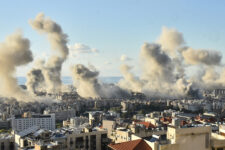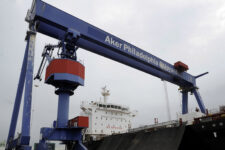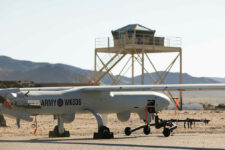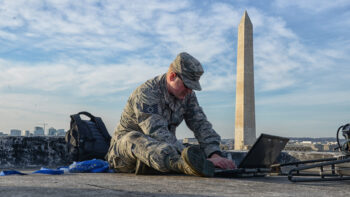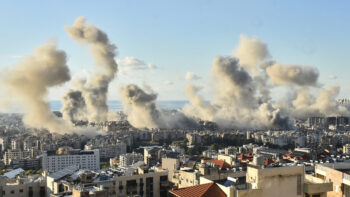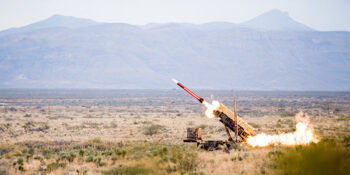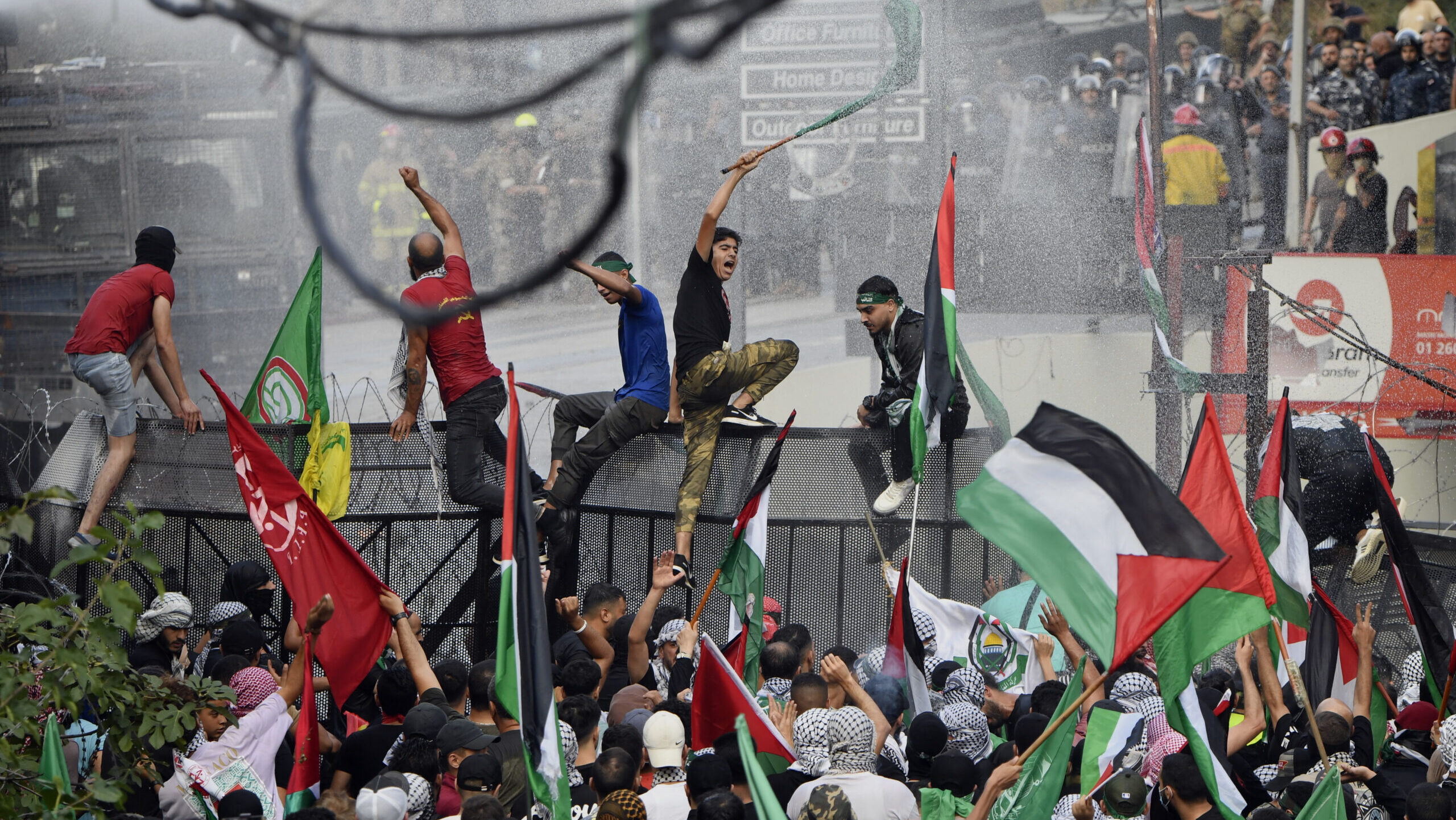
People, carrying the Palestinian flag and banners, gather in front of the US Embassy to protest against the Israeli attacks on Gaza in Beirut, Lebanon on October 18, 2023. (Houssam Shbaro/Anadolu via Getty Images)
BEIRUT — For Lebanon, a country that has been rocked by an economic crisis since 2019, and Beirut, a city that still has not recovered from a 2020 port explosion, the events in Israel since Oct. 7 have felt like a slow boil of tensions. And the events of the past 24 hours appear to have caused those tensions to erupt, with the future results unclear.
The inciting incident was Tuesday’s explosion at the Al-Ahli Al Arabi hospital in Gaza, which was initially and quickly blamed on Israel. People protesting the Gaza hospital strike, which killed 500 Palestinians, began gathering and protesting Tuesday evening, twice setting fire in a building nearby the US embassy in Lebanon over the last 24 hours. (The US today said it believes Israel was not behind the explosion, a statement unlikely to convince anyone who was set to throw rocks at the US embassy here anyway.)
Clashes between Lebanese armed forces and protestors began Tuesday night and continued into Wednesday afternoon. Blocks from the US embassy, gunshots were heard, while video taken Wednesday shows the use of water canon by the military and rocks being thrown by protestors while holding aloft Palestinian flags. The protests have yet to abate, and may only grow: Hezbollah announced Wednesday the 18th to be a day of “unprecedented anger.” Local schools were shuttered — ostensibly as a day of mourning for civilians killed in Gaza but as much about keeping kids safely off the streets during a situation where no one knows what comes next.
Other nations are now warning their citizens to stay away. The US embassy raised its travel advisory to level four, urging US citizens not to go to Lebanon or to the borders with Syria and Israel, and to stay away from refugee settlements due to the high risks of armed clashes. Canada is preparing for possible evacuation of its citizens from Lebanon, while Saudi Arabia, Kuwait, and France have called for their citizens to leave the country. Some airlines have stopped their flights to and from Lebanon, including Swiss airlines and German airline Lufthansa.
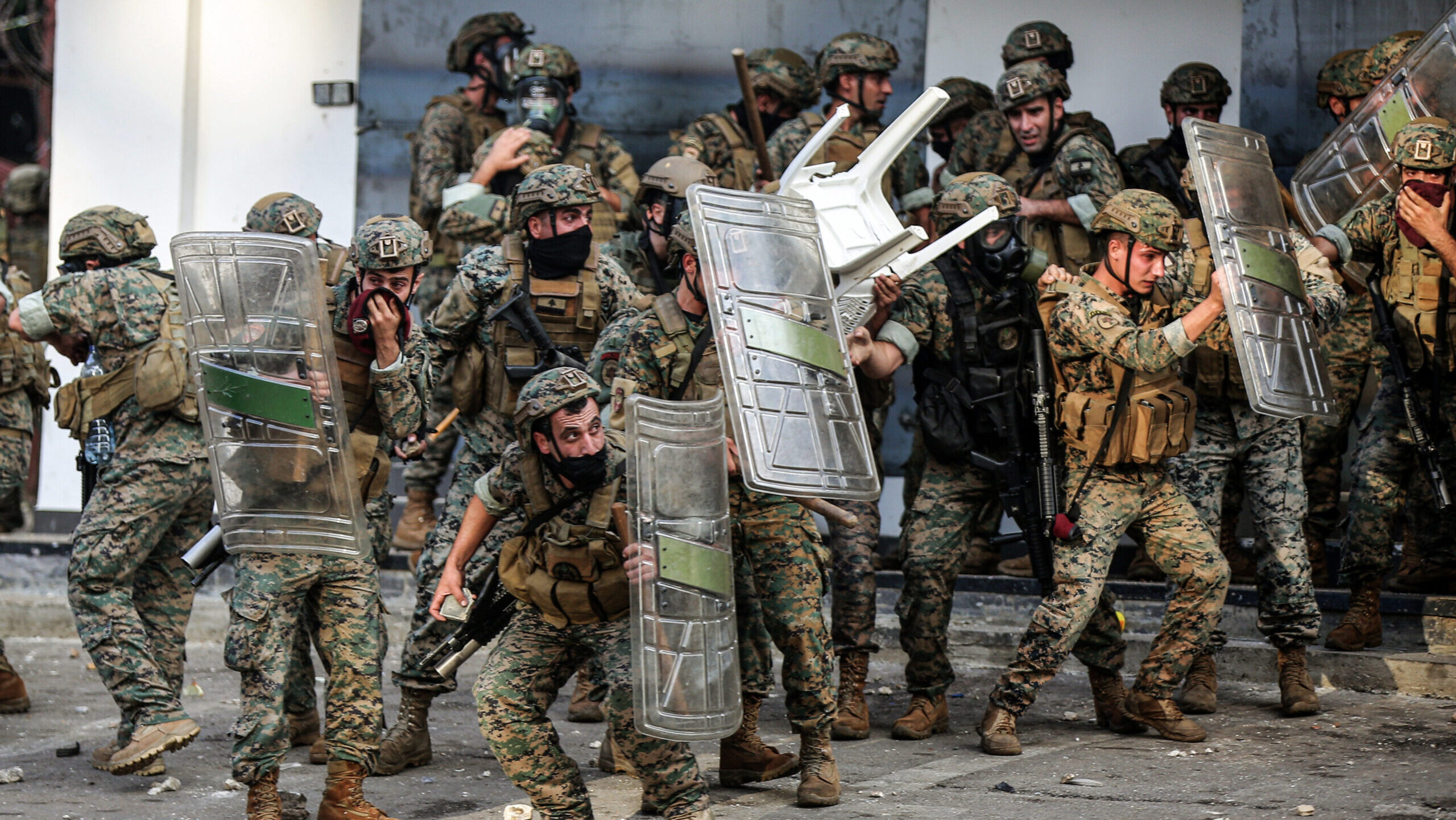
18 October 2023, Lebanon, Beit Awkar: A Lebanese army soldier take cover as they attack Lebanese and Palestinian protestors who tried to push through the premises of the US embassy in Awkar north of Beirut during clashes following a pro-Palestine demonstration. Photo: Marwan Naamani/dpa (Photo by Marwan Naamani/picture alliance via Getty Images)
In a small but telling detail, the inauguration ceremony of the Protector-class ships — the pride of the Lebanese Navy — that was expected earlier this month was cancelled due to the escalation in Gaza.
Yet, chaos in Beirut and clashes in the street are not the worst nightmare haunting Lebanon. The true worst case scenario is a full-blown clash with Israel that could push the deterioration of Lebanon to unprecedented levels.
The 34-day war between Lebanon and Israel in 2006 still dwells in the memory of Lebanese people. There is ongoing concern that Iran, Hezbollah’s benefactor, will push the Lebanese-based group towards more actively engaging with Israel; while not officially the government, Hezbollah effectively runs chunks of Lebanon, and Israel has made clear it will not differentiate between regular Lebanese and Hezbollah if it decides to take action.
In a statement that summed up the situation the Lebanese government finds itself in, Prime Minister Najib Mikati said in an Oct. 14 interview with Al-Jadeed TV that decisions about going to war with Israel were “not in” the hands of the government. When pressed by the interviewer on that statement, Mikati pushed back, saying, “You live in Lebanon and you know the whole situation. Let’s be realistic, is the decision of war taken by the Lebanese cabinet?”
RELATED: Pentagon ‘deeply concerned’ Hezbollah could widen Israel-Gaza conflict, analysts more sanguine
There is consensus that if war breaks out, it will be much fiercer than in 2006 thanks to the increase in Hezbollah’s military arsenal and expertise after the conflict in Syria, and the public support Israel has garnered from the US and European nations.
On the southern border with Israel, the situation is far from calm. Since shortly after Israel’s conflict with Hamas kicked off, there have been exchanges of rockets and drones from Hezbollah from the Lebanese side and the Israel Defense Forces from the south. The Israel army has not only targeted Hezbollah launching sites but has also hit a tower and a post for the Lebanese armed forces on the borders.
Although Iran has warned Tuesday of a possible “preemptive” step against Israel as Tel Aviv was preparing for a ground attack of the Gaza strip, Hezbollah has not yet taken any major actions, and Israel has forestalled its land invasion of the Gaza strip. Five Hezbollah fighters were reportedly killed Tuesday by Israeli fires, raising the reported number of the armed group’s casualties to 10. In addition, a Reuters videographer was killed and journalists injured near Alma Al Shaab in South Lebanon from what reportedly was Israeli fire.
Since the Oct. 7 attacks, many Lebanese southern villagers have left their homes and towns in order to move towards safer spots in the north. The sad reality is that Beirut, the most secure part of the country, will hardly be safe shelter if full-scale war with Israel breaks out, given the humble capabilities of Lebanese military air defenses and Israel’s advanced weapons. It doesn’t take much imagination to look at the devastation in Gaza and picture the same sort of bombardment striking the city known as the “Paris of the Middle East.”
Every day, it feels like rockets and missiles are heard more extensively and closer-in than the day before. The sense that Lebanon is growing closer to a doomsday scenario not of its choosing is hanging over the population. For those living in Beirut, the sense of a fate out of their hands is very real.
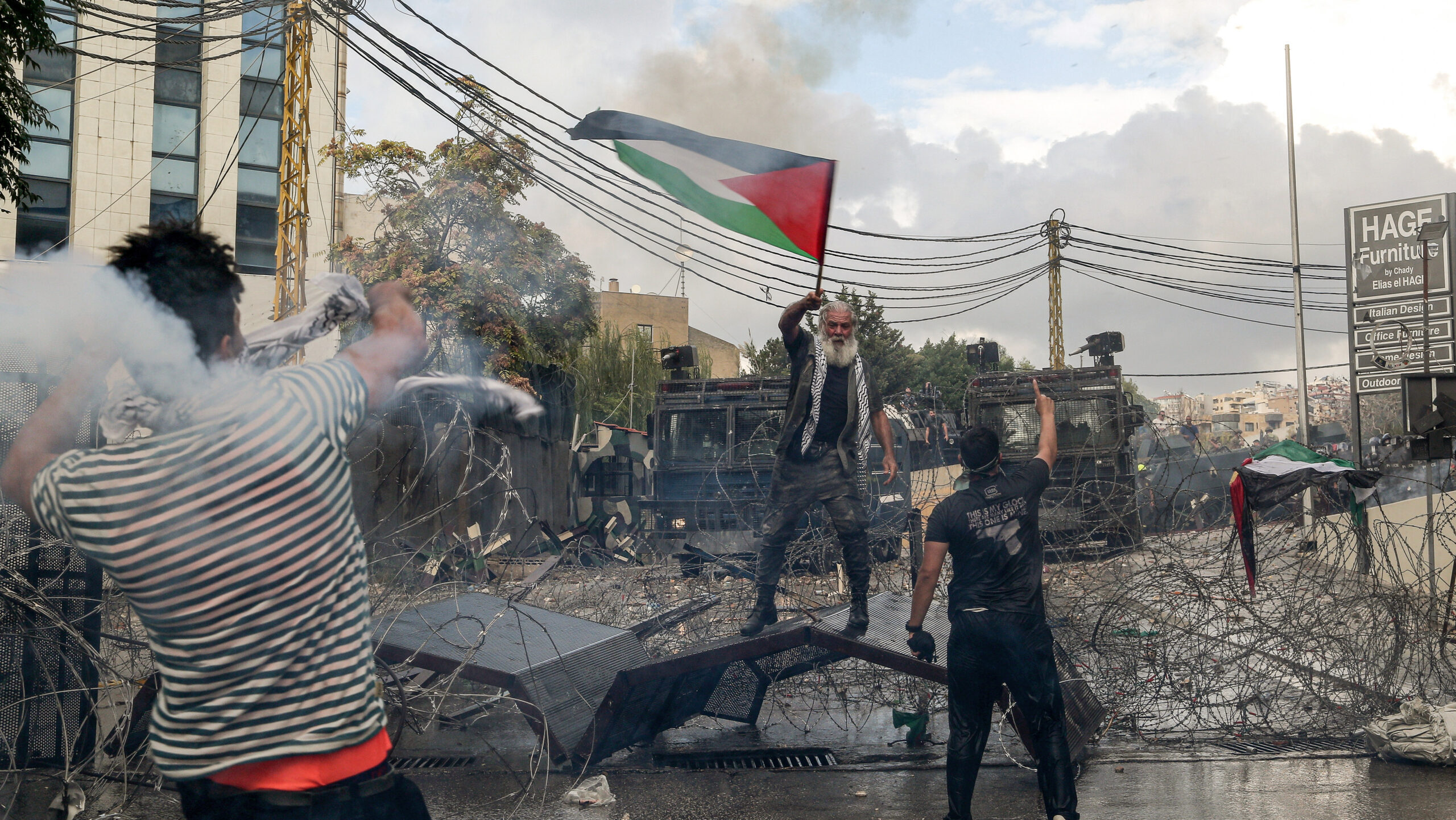
18 October 2023, Lebanon, Beit Awkar: A protestor throws back a tear gas bomb at soldiers securing the premises of the US embassy in Awkar north of Beirut during clashes following a pro-Palestine demonstration. Photo: Marwan Naamani/dpa (Photo by Marwan Naamani/picture alliance via Getty Images)
Everything comes down to Ukraine: 5 stories from Europe in 2024
Of all that happened during the Ukraine conflict in the last 12 months, the deployment of North Korean troops to the Russian border territory of Kursk stands out from the pack.

